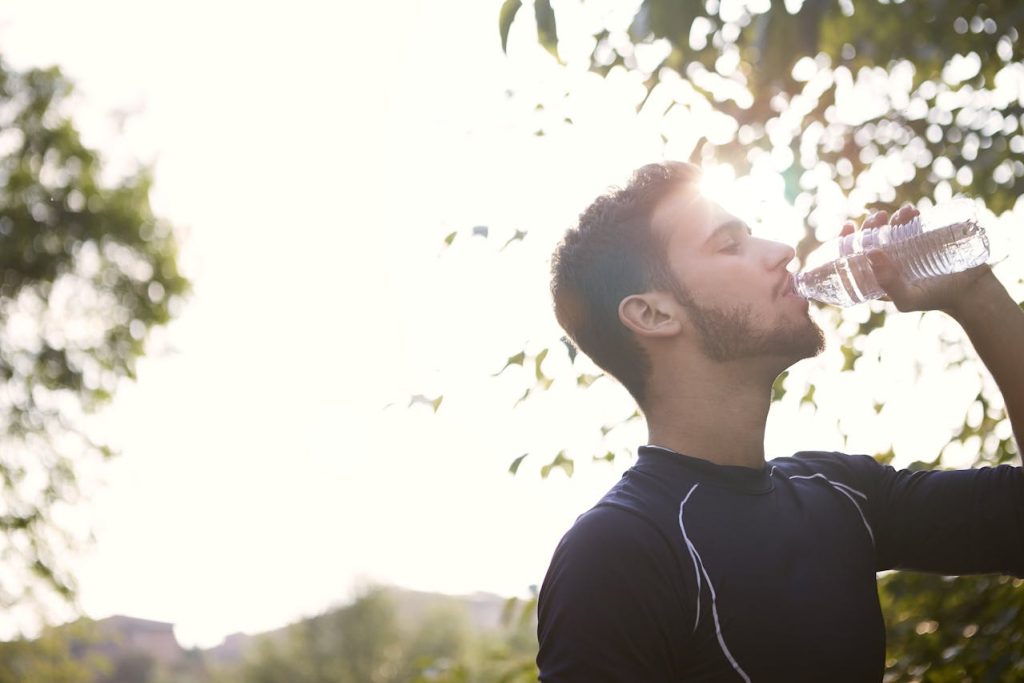
Staying properly hydrated is crucial for athletes at every level, whether you’re competing on the field, training in the gym, or recovering on rest days. Hydration not only enhances performance but also supports overall health and well-being. I have always struggled in this area, but after making a conscious effort to drink more water throughout the day, I’ve noticed a profound difference in how I feel, how my skin looks, and how I can perform throughout the day. Here are 8 hydration habits to help athletes maximize their performance.
8 Essential Hydration Habits for Athletes
1. Start your day with water. Kick-start your hydration by drinking a glass of water as soon as you wake up. This helps replenish fluids lost overnight and sets a strong foundation for staying hydrated throughout the day.
2. Set hydration reminders. It’s easy to forget to drink water, especially with a busy schedule. Setting reminders on your phone or using a hydration app can help you maintain a consistent water intake. You can also carry a water bottle with marked time goals to track your progress.
3. Hydrate before, during, and after workouts. Staying hydrated around your training sessions is key. Drink 16-20 ounces of water two hours before exercising, 7-10 ounces every 10-20 minutes during workouts, and at least 8 ounces within 30 minutes of finishing. Weigh yourself before and after workouts to understand your sweat rate and adjust your fluid intake accordingly.
4. Opt for electrolyte-rich drinks when needed. During intense training or when sweating heavily, water alone may not be enough. Electrolyte drinks can help replenish lost minerals like sodium, potassium, and magnesium, which are essential for muscle function and preventing cramps. Choose low-sugar options with balanced electrolytes to avoid excessive sugar intake.
5. Incorporate hydrating foods. Fruits and vegetables with high water content, such as watermelon, cucumbers, oranges, and strawberries, contribute to your daily hydration. These snacks also provide valuable vitamins and nutrients that support recovery and performance.
6. Listen to your body’s cues. Thirst is a sign that your body needs fluids, but waiting until you’re thirsty may mean you’re already dehydrated. Monitor your urine color as a quick hydration check—light yellow usually indicates proper hydration, while dark yellow or amber suggests you need more fluids.
7. Create a hydration routine. Establishing a routine around hydration can make it second nature. Drink a glass of water before every meal, sip water during breaks, and keep a water bottle within reach throughout the day. Developing these habits can help ensure you stay hydrated without even thinking about it.
8. Be mindful of your environment. Weather and climate affect hydration needs. Hot, humid conditions and high-altitude environments increase fluid loss, so adjust your intake accordingly. During travel or in extreme conditions, prioritize hydration to maintain performance levels.
Developing consistent hydration habits can have a big impact on an athlete’s performance and recovery. By staying proactive with water intake, incorporating electrolyte-rich drinks when necessary, and listening to your body’s cues, you can maintain optimal hydration and keep your body performing at its best. Cheers to staying hydrated and staying ahead of the game!